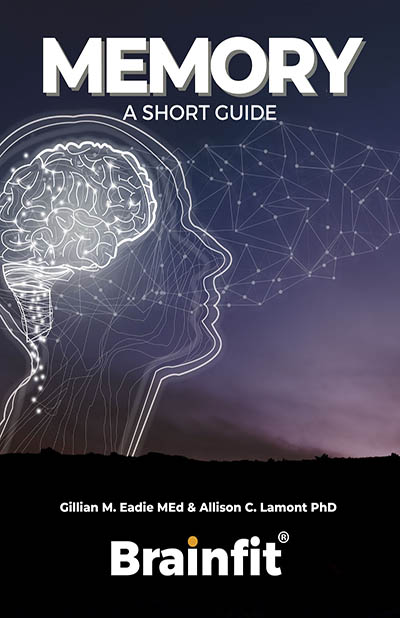Question 1: Which type of fatty acids, found in fatty fish like salmon and trout, are known to support brain function?
- A) Omega-6 fatty acids
- B) Omega-3 fatty acids
- C) Saturated fats
- D) Trans fats
ANSWER
Question 2: What is the primary source of energy for brain cells?
- A) Protein
- B) Fat
- C) Glucose
- D) Fibre
ANSWER
Dietary Carbohydrates: The most direct source of glucose is the carbohydrates you consume in your diet. Carbohydrates are broken down during digestion into sugars, including glucose. Common sources of dietary carbohydrates include grains, fruits, vegetables, legumes, and sugars.
Glycogen: Your body can store glucose in the form of glycogen in the liver and muscles. When blood sugar levels drop between meals or during physical activity, the body can break down glycogen into glucose to maintain stable blood sugar levels.
Gluconeogenesis: If glucose intake is insufficient or during periods of fasting, the body can produce glucose through a process called gluconeogenesis. In this process, non-carbohydrate compounds, such as amino acids from proteins and glycerol from fats, are converted into glucose.
Excess Sugar Storage: When you consume more glucose than your body needs for immediate energy, it can be stored as fat for future use. This fat can later be converted back into glucose if necessary.
The brain is highly dependent on a consistent supply of glucose to function optimally. It cannot store glucose like other organs, so it relies on a steady supply from the bloodstream. When blood sugar levels drop too low, it can lead to cognitive impairment, difficulty concentrating, and, in severe cases, unconsciousness. Maintaining stable blood sugar levels through a balanced diet that includes complex carbohydrates and avoiding extreme fluctuations in blood sugar is essential for supporting brain health and cognitive function.
Question 3: What is the name of the selective barrier that regulates what substances can pass from the bloodstream into the brain?
- A) Blood-brain barrier
- B) Brain gatekeeper
- C) Neural boundary
- D) Cerebral checkpoint
ANSWER
Question 4: Which dietary pattern, rich in fruits, vegetables, whole grains, olive oil, and fish, has been associated with a lower risk of cognitive decline and neurodegenerative diseases?
- A) Ketogenic diet
- B) Paleo diet
- C) Vegan diet
- D) Mediterranean diet
ANSWER
Question 5: Which of the following foods have the antioxidant properties so important for maintaining brain health?
- A) Ice Cream, sorbets
- B) Processed cheeses
- C) Berries, nuts, dark chocolate, leafy greens
- D) White bread, buns
ANSWER
Question 6: What is a key recommendation for maintaining brain health regarding sugars and processed foods?
- A) Consume them freely
- B) Avoid them entirely
- C) Limit the consumption of sugars and highly processed foods
- D) Include them in every meal
ANSWER
Question 7: Which of these macronutrient groups is essential for overall brain health and should be included in a balanced diet?
- A) Carbohydrates, proteins, and vitamins
- B) Fats, minerals, and fibre
- C) Carbohydrates, proteins, and fats
- D) Sugars, sodium, and water
ANSWER
Carbohydrates: Carbohydrates should typically make up about 45-65% of your daily caloric intake. This is the primary source of energy for most people. Choose complex carbohydrates like whole grains, fruits, vegetables, and legumes for sustained energy and fiber.
Proteins: Protein intake should generally account for about 10-35% of your daily calories. Protein is essential for building and repairing tissues, and it can help with satiety. Good sources of protein include lean meats, poultry, fish, eggs, dairy products, legumes, and plant-based sources like tofu and tempeh.
Fats: Dietary fat should make up around 20-35% of your daily caloric intake. Focus on healthy fats, such as monounsaturated fats and polyunsaturated fats (including omega-3 fatty acids). Sources include avocados, nuts, seeds, fatty fish, and olive oil. Limit saturated and trans fats, which can have negative health effects.
Keep in mind that these are general guidelines, and the ideal macronutrient distribution may vary based on factors like age, sex, activity level, and specific health goals. Athletes and individuals with certain medical conditions may require different ratios.
Balancing macronutrients is important for overall health and can help you maintain energy, manage weight, and support various bodily functions. It’s also important to focus on the quality of the macronutrients you consume. For example, choose whole, unprocessed foods over refined or highly processed options.
If you have specific dietary goals or health concerns, it’s a good idea to consult with a registered dietitian or nutritionist. They can provide personalized recommendations based on your individual needs and preferences. Additionally, tracking your macronutrient intake and assessing its impact on your health and performance can be helpful in fine-tuning your diet to meet your goals.
Question 8: What is the recommended approach to alcohol consumption for brain health?
- A) Avoid alcohol completely
- B) Drink alcohol excessively
- C) Drink alcohol in moderation
- D) Consume alcohol daily
ANSWER
Question 9: Besides nutrition, what are other factors important for keeping the brain active and alert?
- A) Eating chocolate
- B) Watching TV
- C) Staying mentally and socially active, getting regular exercise, managing stress, and getting enough sleep
- D) Taking long naps
ANSWER
What are your favourite kinds of brain food? Do you have snack tips to share with others?





I didn’t do very well at that
Got four right
All great advice
Peanuts
Peanut brownies, fruit, cheese and crackers.
I bought cgpMAX after seeing on your website and said I would report back with any results, I am 83yrs, no brain problems noticed but was getting very tired as have a heart condition.
I notice I feel better in myself in the 30days I have tried the tablets. Certainly not getting tired, enough improvement for me to carry on taking the tablets for the full 3 months.
For a snack, keep a glass jar of thick, unsweetened chocolate chia pudding in the fridge. Take a few heaped tablespoons out at a time, placing it into a cup. Loosen it up by adding natural yoghurt or milk. Can add chopped nuts or/and fruit. Always make sure that you use milk or yoghurt with plenty of use by date left on it for the starter jar. Yummy!
Hi
The WHO has has changed it’s recommendations in regards alcohol and declared any alcohol consumption to be a health risk.
It is also not totally correct to say the brain needs carbs as it can actually also run on fats and some people even experience improved brain function on a ketogenic diet which is very low on carbs and high in fat.
Concise excellent information
Concise, excellent information
Green Vegetables Fish, Chicken, Nuts and seeds, Broccoli, Cabbage, Dark Chocolate
Good revision
I try to follow a vegetarian dairy free diet and get my Omega -3 fatty acid from flaxseeds
We like wholegrain bread toasted and dipped in a taste of olive oil and dukkah . A small helping is yummy and easy prepare.
Very interesting indeed, I do keep to the nuts, fruit, raw veges, dark chocolate, and dont drink alcohol at, all ONLY non alcohol wine. Loved the survey.
This sounds wonderful! I’ll try doing this ….
Great choices! Your brain will be very happy.
Great choices!
Thank you for the feedback. There is a lot of conflicting research out there, I agree. Reservatrol (grapes, red wine and other red-coloured fruit) has been given positive research results in the Mediterranean diet so individual, sensible choices need to be made. Dr Guan says that all food is brain food – it is the way we decide what to eat that really matters.
Sounds delicious!
I’m very interested to see this feedback, especially as it mirrors my own experience. Do update us after the three months!
Your brain will love these ….
Finding our more is the objective so don’t worry about how many!
Dear Julie,
many thanks for your feedback. We are glad to hear of your positive experiences with cGPMAX and hope to learn more as you continue.
Regards,
Vishakha
Research & Innovation Scientist | The cGP Lab
Research Scientist | BrainFit
Well, I did get the answers correct and my Doctor says that the diet I follow “is doing the right thing “. I m 84 with a couple of health issues but still maintain a healthy diet so hopefully I am managing to keep my brain healthy too.
Failed miserably!
I’m sure you are – your brain will thank you for the healthy diet! Well done!
Try it again, Anita! You really know wht’s healthy and what isn’t ….. keeping away from heavily processed foods is a great first step.
Any research on brain fog, and long-term use of statins
Thank you for this interesting question. There have been a number of studies over the years on the use of statins and the effect they have on memory. https://neurosciencenews.com/statins-memory-loss-15221/ Researchers do not always agree! https://neurosciencenews.com/statins-depression-20602/ and from 2014, https://neurosciencenews.com/neurology-statin-cognitive-impairment-446/ Dr Lamont wrote this answer to another reader a few years ago – https://www.brainfit.world/medication-memory/ I hope you find these useful.